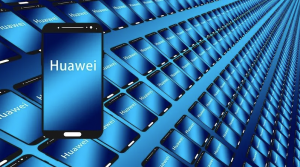Huawei Mate 60 Rollout: Has The United States Committed Harakiri? – OpEd
Published on September 11, 2023 | by Dr Lim Teck Ghee | www.eurasiareview.com
The launch by Huawei of its latest handphone should never have happened according to the planning of US strategic and foreign policy makers.
During the last five years the Trump and Biden administrations have tried every trick in the economics, geo-political and industrial manufacturing books and more to cripple the Chinese semiconductor industry by blocking its access to advanced semiconductors, chip-making equipment, and supercomputer components.
The number one target has been Huawei, China’s telecommunications manufacturing giant, which in 2012 overtook Ericsson as the world’s largest telecommunications equipment manufacturer and in 2018 displaced Apple as the world’s second largest manufacturer of smartphones.
The centrepiece of US policy to cripple China in what has been labelled as the battle for global technological superiority in which semiconductor chips are regarded as the critical game changer has focused on efforts to take Huawei down with unproven and unfounded charges that its equipment would enable the Chinese government to conduct espionage and was therefore a threat to US and its allies’ national security.
These efforts began with the blacklisting of Huawei by the Trump administration in 2019 followed by the Federal Communications Commission designation of Huawei as a national security threat and the order to US carriers to pull Huawei equipment out from their networks in 2020.
Under US pressure, Australia, Japan, the UK, Canada and Sweden joined in banning Huawei 5G equipment. But, as the great majority of the world’s nations refused to follow suit, the Biden administration escalated its drive to beat down China’s and Huawei’s semiconductor manufacturing development.
Taiwan, Netherlands and Japan have been harassed into blockage of exports of advanced chip making equipment to China in the US masterplan to add a decade or more to the timeline for China’s semiconductor self-sufficiency; and to ensure that China’s self-sufficiency ambition would implode.
Biden’s ‘Thermonuclear Bomb’ Against China’s Semiconductor Industry
In October 2022, the Biden administration set off what has been described as “a thermonuclear bomb” at the heart of Beijing’s technology industry. New export rules were announced which included a measure to cut China off from specific semiconductor chips made anywhere in the world with US tools. At the same time, as part of these rules, “U.S. persons” that supported the development of production of certain chips in China were required a licence to do so – in effect compelling them to look for alternative employment.
According to one analyst: With the new Biden sanctions, all American suppliers of IP blocks, components, and services departed overnight – thus cutting off all service [to China]. Long story short, every advanced node semiconductor company is currently facing comprehensive supply cut-off, resignations from all American staff, and immediate operations paralysis. This is what annihilation looks like: China’s semiconductor manufacturing industry was reduced to zero overnight. Complete collapse. No chance of survival.” (Posted at Jordan Schneider’s Twitter account @jordanschnyc)
Huawei and China Fightback
Killing off Huawei? Complete collapse of China’s semiconductor manufacturing?
In a news story that is still reverberating around the technology and political world, Huawei recently launched its latest Mate line of smartphones. The low key unveiling which took the tech world by surprise coincidentally took place during the visit of US commerce secretary, Gina Raimondo.
Favourably received by technical analysts – many from the US – who took apart the innards of the handphone, most have praised Huawei for pushing back the boundaries of innovation and delivering cutting edge technology at affordable prices to users, It is possibly the first mainstream smartphone that can support users without access to conventional networks. This remarkable feature will be especially useful during catastrophic events anywhere in the world, including in the US.
The smartphone and technology pages of the internet have been buzzing over its impressive features – powerful Kirian chipset, curved OLED display, triple rear camera system, a 13-megapixel front camera and a 3D depth camera for secure and accurate face recognition and fast charging capabilities. Rave reports have also emerged of its potential 6G feature which enables satellite communication and the Internet of Everything.
With Mate 60 and Mate 60 Pro sales estimated by analysts at 15 million or more, Huawei should be able to survive what may be the most sanctions in the history of modern business put up by a group of countries against a single enterprise. Its future prospects look brighter than ever.
Huawei’s existence is also a body blow to US attempts to thwart China’s development and capabilities, and to inflict damage not only in the military sector but also in the economic and technological arenas. This United States experience of sanctions against Huawei and China illustrates how sanctions can backfire when faced by a determined opponent. In the case of Huawei, sanctions have forced the company to reduce its reliance on the US and its allies as well as pushed the company into partnership with China chipmaking manufacturer, Semiconductor Manufacturing International Corporation, to develop a 7-nanometer superchip that the Chinese were not expected to manufacture for another 5-10 years at least.
For now it appears that the US instead of focusing on developing its technological base to meet the Huawei challenge appears determined to play dirtier by applying even more sanctions on the company. At the latest press briefing held on the subject of US reaction to Huawei, a spokesperson for the Chinese Foreign Ministry, Mao Ning, was asked to comment on the US government’s official probe into the advanced Chinese-made chip in Huawei’s latest smartphones.
The response: “We oppose politicising trade and technology issues and overstretching and abusing the concept of national security. The US has abused state power to suppress Chinese companies”.
“[S]anctions and curbs will not stop China’s development. They will only strengthen China’s resolve and capability to seek self-reliance and technological innovation”.
Meanwhile, the US stock market is being impacted by the economic costs of Huawei’s latest product launch. With that as a backdrop, US, Dutch and Taiwanese telecommunication companies have lost billions in trading losses as of Friday, 8 September with wireless chips provider Qualcomm (QCOM -0.24%) tumbling 6.7%, semiconductor equipment systems provider ASML Holding (ASML -1.56%) slumping 4.6%, chipmaker Taiwan Semiconductor Manufacturing (TSM -0.46%) falling 3.2%, and chipmaker Broadcom (AVGO 0.06%) dipping 2.4% by 1:21 p.m. ET. As for US tech titan Apple, analysts have predicted that the firm could lose as many as 10 million iPhone sales to Huawei.
Lim Teck Ghee
 Lim Teck Ghee PhD is a Malaysian economic historian, policy analyst and public intellectual whose career has straddled academia, civil society organisations and international development agencies. He has a regular column, Another Take, in The Sun, a Malaysian daily; and is author of Challenging the Status Quo in Malaysia.
Lim Teck Ghee PhD is a Malaysian economic historian, policy analyst and public intellectual whose career has straddled academia, civil society organisations and international development agencies. He has a regular column, Another Take, in The Sun, a Malaysian daily; and is author of Challenging the Status Quo in Malaysia.









